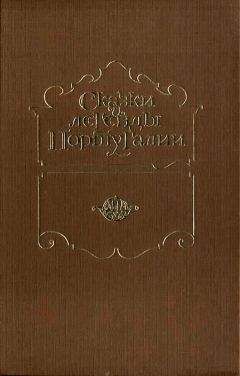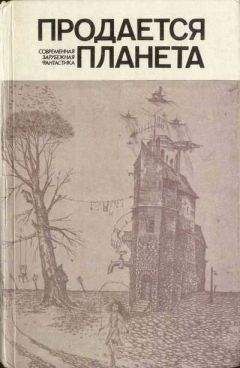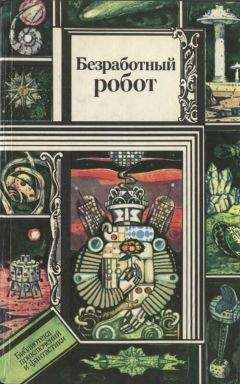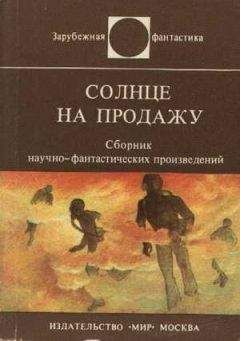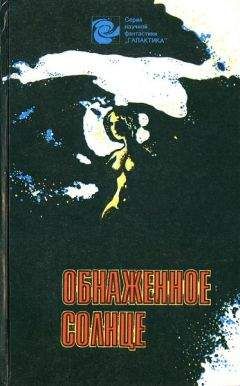Все мы нуждаемся иногда в помощи и поддержке. В психодраме и то, и другое можно получить от членов группы, а за ее пределами — от семьи и друзей. Сложившийся характер подразумевает, что мы одновременно все больше полагаемся на самих себя и расширяем и углубляем отношения, способные поддержать.
Таков аспект экзистенциальной философии в психодраме — философии, у которой, на мой взгляд, нет никаких разногласий с психоаналитическим пониманием человеческой личности.
American Psychiatric Association (1980) Diagnostic and Statistical Manual of Mental Disorders (DSMIII), Washington, DC: AMA.
Ancelin Schuzenberger, A. (1985) Vo и loir Guerir, Toulouse: Eres; Paris: La Meridienne.
Ashbach, C. and Schermer, V. L. (1987) Object Relations, the Self, and the Group: A Conceptual Paradigm, London: Routledge & Kegan Paul.
Aveline, M. and Dryden, W. (1988) Group Therapy in Britain, Milton Keynes: Open University Press.
Balint, M. (1968) The Basic Fault, London, Tavistock.
Benkovitz, M. J. (1977) Fredrick Rolfe: Baron Corvo. A Biography, New York: Putnam.
Bertalanfly, L. von (1967) Robots, Men, and Minds: Psychology in the Modem World, New York: George Brazillier.
Bertalanffy, L. von (1968) General Systems Theory, New York: George Brazillier.
Bion, W. R. (1961) Experiences in Groups, London: Tavistock.
Bion, W. R. (1967) Second Thoughts, London: Heinemann.
Bion, W. R. (1970) Attention and Interpretation, London: Tavistock.
Blatner, H. A. (1970) ‘Psychodrama, role–playing, and action methods: theory and practice’, Thetford, Norfolk: private publication.
Blatner, H. A. (1988) Acting‑In: Practical Applications of Psychodramatic Methods, New York: Springer.
Blatner, A. with Blatner, A. (1988) Foundations of Psychodrama: History, Theory, Practice, New York: Springer.
Bowlby, J. (1969) Attachment and Loss, Vol. 1, Attachment, London: Hogarth Press; Penguin, 1971.
Bowlby, J. (1973) Attachment and Loss, Vol. 2, Separation: Anxiety and Anger, London: Hogarth; Penguin, 1975.
Bowlby, J. (1979) The Making and Breaking of Affectional Bonds, London: Tavistock/Routledge.
Bowlby, J. (1980) Attachment and Loss, Vol. 3, Loss: Sadness and Depression, London: Hogarth; Penguin, 1981.
Brown, G. W. and Harris, T. (1978) Social Origins of Depression, London: Tavistock.
Buck, R. (1988) Human Motivation and Emotion, 3rd edition, New York: Wiley.
Bustos, D. (1980) El Test Sociometrico: Fundamentos, Tecnicas у Aplicaciones, Buenos Aires: Editorial Vancu.
Casement, P. (1988) ‘The experience of trauma in the transference’, in J. Sandier (ed.) Projection, Identification, and Projective Identification, London: Kamac.
Changeux, J-P. (1985) Neuronal Man: The Biology of Mind, Oxford: Oxford University Press.
Clarkson, P. (1990) ‘A multiplicity of psychotherapeutic relationships’, British Journal of Psychotherapy 7 (2): 148–63.
Concise Oxford Dictionary (1990) Oxford: Oxford University Press.
Cooper, D. E. (1990) Existentialism, Oxford: Basil Blackwell.
De Board, R. (1978) The Psychoanalysis of Organizations, London: Tavistock.
Dockar‑Drysdale, B. (1973) Consultations in Child Care, London: Longman.
Lairbaim, W. R. (1952) Psychoanalytic Studies of the Personality, London: Routledge & Regan Paul.
Lairbaim, W. R. (1963) ‘Synopsis of an object–relations theory of personality’, International Journal of Psycho—Analysis 44: 224–5.
Firth, J., Shapiro, D. A., and Parry, G. (1986) ‘The impact of research on the practice of psychotherapy’, British Journal of Psychotherapy 2 (3): 169–79.
Forrest, A. D., Affleck, A. W., and Zealley, A. K. (1978) Companion to Psychiatric Studies, Edinburgh, London & New York: Churchill Livingstone.
Foulkes, S. H. (1964) Therapeutic Group Analysis, London: Maresfield Reprints.
Foulkes, S. FL (1975) Group—Analytic Psychotherapy: Methods and Principles, London: Gordon & Breach.
Foulkes, S. H. and Anthony, E. J. (1957) Group Psychotherapy: The Psychoanalytic Approach, Harmondsworth: Penguin.
Fox, J. (ed.) (1987) The Essential Moreno: Writings on Psychodrama, Group Method and Spontaneity by J. L. Moreno MD, New York: Springer.
Freud, A. (1936 and 1966) The Ego and the Mechanisms of Defense, New York: International Universities Press.
Freud, S. (1887 and 1954) ‘A project for a scientific psychology’, The Standard Edition of the Complete Psychological Works of Sigmund Freud, Vol. 1, London: Hogarth Press.
Freud, S. (1901) The Psychopathology of Everyday Life, Harmondsworth: Pelican Books, Pelican Freud Library (P. F.L.) 5.
Freud, S. (1905a) Fragment of’ an Analysis of a Case of Hysteria (‘Dora), P. F.L. 8.
Freud, S. (1905b) Three Essays on the Theory of Sexuality, P. F.L. 7.
Freud, S. (1910) ‘The future prospects of psycho–analytic psychotherapy’, S. E. 11.
Freud, S. (19129 ‘Recommendations to physicians practising psychoanalysis’ S. E. 12.
Freud, S. (1914) ‘On narcissism: an introduction’, P. F.L. 11.
Freud, S. (1915) ‘Instincts and their vicissitudes’, P. F.L. 1.
Freud, S. (1916–17) Introductory Lectures on Psycho—Analysis, P. F.L. 1.
Freud, S. (1921) Group Psychology and the Analysis of the Ego, P. F.L. 12.
Freud, S. (1923) The Ego and the Id, P. F.L. 11.
Freud, S. (1926) Inhibitions, Symptoms and Anxiety, London: Hogarth Press also P. F.L 10.
Freud, S. (1933) New Introductory Lectures on Psycho—Analysis, P. F.L. 2.
Freud, S. (1940) An Outline of Psycho—Analysis, P. F.L. 15.
Freud, S. and Breuer, J. (1895) Studies on Hysteria, P. F.L. 3.
Garfield, S. L. and Bergin, A. E. (1986) Handbook of Psychotherapy and Behaviour Change, 3rd edn, New York: John Wiley and Sons.
Goldman, E. E. and Morrison, D. S. (1984) Psychodrama: Experience and Process, Dubuque, LA: Kendall Hunt.
Goldstein, E. B. (1989) Sensation and Perception, 3rd edition, Belmont, CA: Wadsworth.
Gorell Barnes, G. (1984)’Systems theory and family theory’, in M. Rutter and L. Hersov (eds) Child and Adolescent Psychiatry: Modem Approaches, Oxford & London: Blackwell Scientific Publications.
Greenson, R. R. (1967) The Technique and Practice of Psychoanalysis, London: Hogarth Press.
Gregory, R. (1966) Eye and Brain, 1st edition, London: Weidenfeld & Nicolson.
Grinberg, L., Sor, D. and Tabak de Bianchedi, E. (1975 and 1985) Introduction to the Work of W. R. Bion, London: Maresfield Library.
Gundersori, J. G. and Singer, M. T. (1975) ‘Defining borderline patients: an overview’, The American Journal of Psychiatry 132 (1): 1–9.
Guntrip, H. (1961) Personality Structure and Human Interaction, London: Hogarth Press.
Guntrip, H. (1968) Schizoid Phenomena, Object Relations and the Self, London: Hogarth Press.
Guntrip, H. (1971) Psychoanalytic Theory, Therapy and the Self, London: Hogarth Press.
Hale, A. (1981) Conducting Clinical Sociometric Explorations: A Manual for Psychodramatists and Sociometrists, Roanoake, VA: Royal.
Harris, T., Brown, G. W., and Bifuico, A. (1990) ‘Loss of parent in childhood and adult psychiatric disorder: a tentative overall model’, Development and Psychopathology 2:311–28.
Heimann, P. (1950) ‘On counter–transference’, International Journal of Psycho—Analysis 31: 81–4.
Hinshelwood, R. D. (1987) What Happens in Groups: Psychoanalysis, the Individual and the Community, London: Free Association Books.
Hinshelwood, R. D. (1989) A Dictionary of Kleinian Thought, London: Free Association Books.
Hippias, H., Klerman, G. L., and Matussek, N. (1986) New Results in Depression Research, Berlin: Springer‑Verlag.
Hodes, M. (1990) ‘Overdosing as communication: a cultural perspective’, British Journal of Medical Psychology 63 (4).
Holmes, P. (1983) ‘Dropping out from an adolescent therapeutic group: a study of factors in the patients and their parents which may influence this process’, Journal of Adolescence 6: 333–46.
Holmes, P. (1984) ‘Boundaries and chaos: an outpatient psychodrama group for adolescents’, Journal of Adolescence 7:387–400.
Holmes, P. (1987) ‘Boundaries and chaos’ (revised version), in J. Coleman (ed.) Working with Troubled Adolescents, London: Academic Press.
Holmes, P. (1989a) «The uses of sociodramatic techniques in providing consultation to institutions working with young people’, Journal of the British Psychodrama Association, 4 (2): 29–49; reprinted (1991) in Journal of the British Psychodrama Association, 6(1).
Holmes, P. (1989b) ‘Wheels within wheels: systems within systems: the assessment process’, Children and Society, 3 (3), 237–54.
Holmes, P. (1992) ‘The roots of enactment in psychoanalysis, family therapy, and psychodrama’, in press.
Holmes. P. and Karp. M. (1991) Psychodrama: Inspiration and Technique, London: Tavistock/Routledge.
Isaacs, S. (1948) «The nature and function of phantasy’, International Journal of Psycho—Analysis, 29 (2): 73–97.
James, C. (1980) ‘Transitional phenomena and the matrix in group psychotherapy’, paper presented at the Vllth International Congress on Group Psychotherapy, Copenhagen, 1980.
Joseph, В. (1988) 'Projective identification: clinical aspects’, in J. Sandier (ed.) Projection, Identification, and Projective Identification, London: Karnac.
Karp, M. (1991a) ‘Preface’, in P. Holmes and M. Karp (eds) Psychodrama: Inspiration and Technique, London: Tavistock/Routledge.
Karp, M. (1991b) ‘Depression: it only hurts when you can’t laugh’, Bulletin of the British Psychodrama Association, July 1991: 3–10.
Katz, B. (1966) Nerve, Muscle, and Synapse, New York: McGraw—Hill.
Kernberg, 0. (1975) Borderline Conditions and Pathological Narcissism, New York: Jason Aronson.
Kernberg, 0. (1976) Object—Relations Theory and Clinical Psychoanalysis, New York:
Jason Aronson.
Kernberg, 0. (1980) Internal World and External Reality, New York: Jason Aronson.
Kernberg, 0. (1984) Severe Personality Disorders: Psychotherapeutic Strategies, New Haven & London: Yale University Press.
Khan, M. (1963) ‘The concept of cumulative trauma’, The Psychoanalytic Study of the Child 18: 286–306.
Kipper, D. A. (1986) Psychotherapy Through Clinical Roleplaying, New York: Brunner/Mazel.
Klauber, J. el al. (1987) Illusion and Spontaneity in Psychoanalysis, London: Free Association Books.
Mein, J. (1987) Our Need for Others and its Roots in Infancy, London: Tavistock.
Mein, M. (1946 and 1975) ‘Notes on some schizoid mechanisms’, in Collected Works, Vol. Ill, Envy and Gratitude, London: Hogarth Press.
Mein, M. (1957 and 1975) Envy and Gratitude, in Collected Works, Vol. Ill, Envy and Gratitude, London: Hogarth Press.
Klein, M. (1975) Collected Works, Vol. I, Love, Guilt and Reparation, London: Hogarth Press.
Kohut, H. (1977) The Restoration of the Self New York: International Universities Press.
Laplanche, J. and Pontalis, J. B. (1967 and 1973) The Language of Psychoanalysis, London: Hogarth Press.
Leveton, E. (1977) Psychodrama for the Timid Clinician, New York: Springer.
Lorenz, K. Z. (1952) King Solomon’s Ring: New Light on Animal Ways, London: Methuen.
Lorenz, K. (1963 and 19669 On Aggression, London: Methuen.
McDougall, J. (1986) Theatres of the Mind: Illusion and Truth on the Psychoanalytic Stage, London: Free Association Books.
MacFarlane, J. (1975) ‘Olfaction in the development of social preferences in the human neonate’, in M. Hofer (ed.) Parent‑Infant Interaction, Amsterdam: Elsevier.
Malan, D. H. (1979) Individual Psychotherapy and the Science of Psychodynamics, London: Butterworths.
Marineau, R. (1989) Jacob Levy Moreno 1889–1974, London: Tavistock/Routledge.
Menzies, I. (1970) A Case Study in the Functioning of a Social System as a Defence Against Anxiety, London: Tavistock Institute of Human Relations.
Minuchin, S. and Fishman, H. C. (1981) Family Therapy Techniques, Cambridge, MA: Harvard University Press.
Moreno, J. L. (1934, 1953 and 1978) Who Shall Survive, 3rd edition, Beacon, NY: Beacon House.

